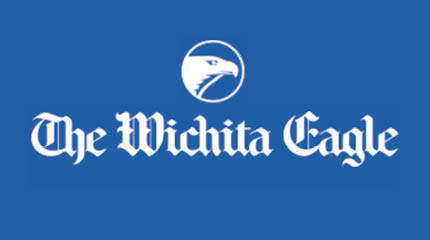The First Amendment doesn’t stop at a farmer’s gate. At least not anymore, thanks to Mark and Coraleen Bunner.
The Bunners are hardworking, honest dairy farmers near Hays. They started their dairy nearly 25 years ago with just a single goat and expanded slowly over the years. The dairy farm was a Bunner-family affair. Their kids were practically raised in the milking parlor. The Bunners took pride in their long hours and found satisfaction in their dairy products. They just couldn’t talk about it.
For years, Kansas criminalized the “promotion” of raw milk away from the farm. On one side of the dirt road, you could talk about it; on the other side, you could wind up in handcuffs.
This speech ban muzzled dairy farmers like the Bunners who were just trying to earn an honest living. They couldn’t put information on their website, print flyers for their local co-op, or post church bulletins.
Farmers weren’t just offended by the speech ban. They were scared they’d end up in jail for simply talking about raw milk. Farmers went to great lengths to avoid saying the wrong thing, to the wrong person, in the wrong place, at the wrong time. For some, they talked about raw milk in code. For others, they felt compelled to lie if someone asked whether they had raw milk for sale. At state and county fairs, dairy farmers remained silent.
This didn’t just hurt dairy farmers; it hurt consumers and the Kansas economy. Frederick Douglass correctly said, “[t]o suppress free speech is a double wrong. It violates the rights of the hearer as well as those of the speaker.” Consumers had no idea how or where they could buy raw milk, a perfectly legal product. Imagine if the government prevented Coca-Cola from advertising or banned the advertisement of a book because it didn’t like what was in the book. That’s what happened here. There’s no telling how many businesses failed because of the ban. What a shame.
The speech ban was not well received across the state. The overwhelming consensus among farmers and city slickers alike was that the ban was unfair and unconstitutional, and people were upset. The government was robbing people of their voice. Nobody publicly supported the ban. But people were terrified that if they spoke up, they’d either get arrested or retaliated against. The legislature had plenty of opportunities to stop the censorship but didn’t. The Secretary of Agriculture continued enforcing the speech ban for years.
The Bunners changed that because they had the courage and fortitude to stand up and speak out. Kansas Justice Institute partnered with the Bunners to end the government’s ban on speech. The Kansas Attorney General eventually agreed the prohibition on speech was “plainly unconstitutional.” Then why did the government enforce it for all these years? Why were farmers threatened with jail for so long? In the end, liberty prevailed. It was a quick and decisive victory for all Kansans.
This case wasn’t just about free speech, though; it was also about holding the government accountable. Whether it’s a Pfeifer dairy farmer challenging a speech ban, a Wichita nurse fighting occupational licensing, or a small business owner tangling with a municipality, it’s important to put the brakes on government abuse and overreach. Doing so promotes respect for the rule of law and returns rights back to the people.
Today, thanks to the Bunners for standing up for what they believed in, the First Amendment casts its light beyond the gates. After all these years, they finally have the right to talk.

